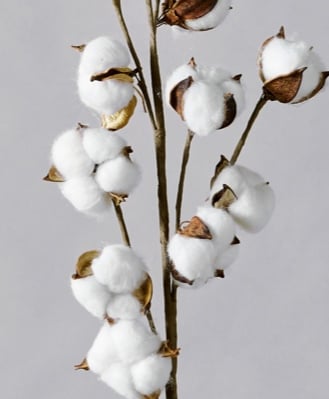15 October 2020
5 facts about organic cotton
Conventional cotton production isn’t great for the environment or the people growing it. That’s why it’s our goal to support 100% sustainably sourced cotton — forever.

Cotton is one of the world’s most popular fabrics. It’s breathable, soft, comfy, and used in everything from denim to underwear. (Chances are, you’re wearing it right now.)
But there’s a downside. Conventional cotton production isn’t great for the environment or the people growing it. That’s why it’s our goal to support 100% sustainably sourced cotton—forever.
Here’s what you need to know.
#1 It uses less water and energy
Most organic cotton is grown on small-scale farms, which tend to be rain-fed rather than irrigated. This makes the soil better at holding water and more resilient to drought. And also reduces pressure on local water sources.
#2 It’s healthier for the ecosystem
Organic cotton uses all-natural seeds from organically grown crops. There’s no pesticides and other harmful chemicals, which means cleaner air and water, soil biodiversity, and healthier workers.
#3 It promotes safe work and better livelihoods
For farmers and their families, organic cotton farming has a lot of positive impacts. They’re not exposed to toxic chemicals. And healthier soil means they’re able to grow other crops for food and income.
#4 It’s certified and traceable
We source organic cotton that’s certified through the Global Organic Textile Standard (GOTS) and Organic Cotton Standard (OCS), so you know that the claims can be trusted and traced back to the source.
#5 It’s softer and more durable
Organic cotton is often handpicked, maintaining purity of the fibre. That’s how it stays so soft. When woven into fabric, natural and safe alternatives are used for dyeing and whitening.






